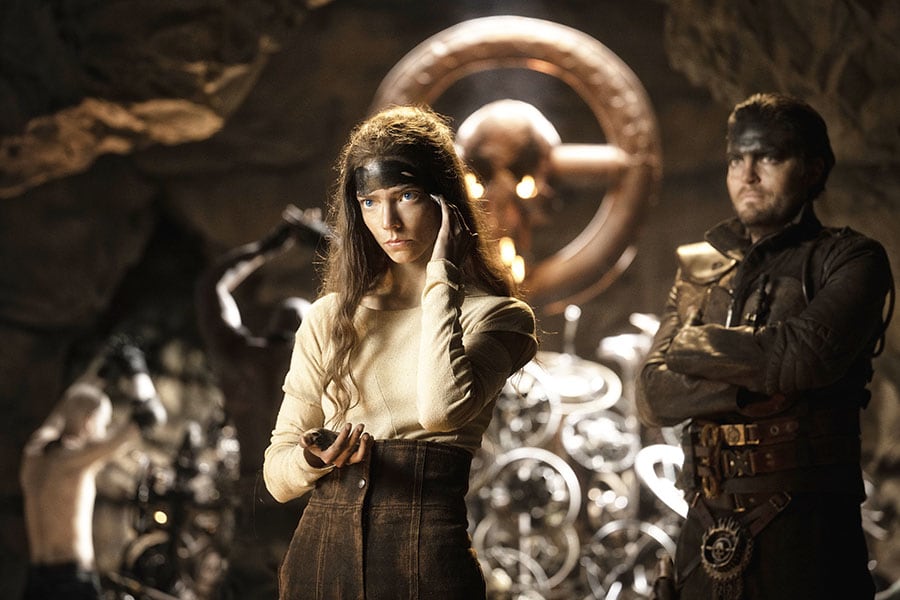
George Miller readies for 'Furiosa: A Mad Max Saga' in 'addictive' series
"Furiosa: A Mad Max Saga," out late May, is an origin story for the formidable female warrior first played by Charlize Theron in 2015's Oscar-winning blockbuster "Mad Max: Fury Road"
 Image Caption - (L to r) Anya Taylor-Joy as Furiosa and Tom Burke as Praetorian Jack in "Furisa: A Mad Max Saga." Image: Jasin Boland © 2024 Warner Bros. Entertainment Inc.
Image Caption - (L to r) Anya Taylor-Joy as Furiosa and Tom Burke as Praetorian Jack in "Furisa: A Mad Max Saga." Image: Jasin Boland © 2024 Warner Bros. Entertainment Inc.
Australian director George Miller described his "Mad Max" series as "addictive" on Monday as he prepares to premiere the fifth film set in its high-octane, post-apocalyptic world with the highly anticipated "Furiosa."
"Furiosa: A Mad Max Saga," out late May, is an origin story for the tough female warrior first played by Charlize Theron in 2015's Oscar-winning blockbuster "Mad Max: Fury Road."
The younger Furiosa will be portrayed by Anya Taylor-Joy, best known to wider audiences from the hit Netflix series "The Queen's Gambit."
The movie will receive a glitzy world premiere at the Cannes film festival early next month, but Miller shared a few early details about the prequel at the CinemaCon movie theater convention in Las Vegas on Monday.
Miller said the idea stemmed from the intense preparations that went into "Fury Road," for which he sketched out detailed childhoods and journeys for each character in order to help actors and crew navigate the world.







